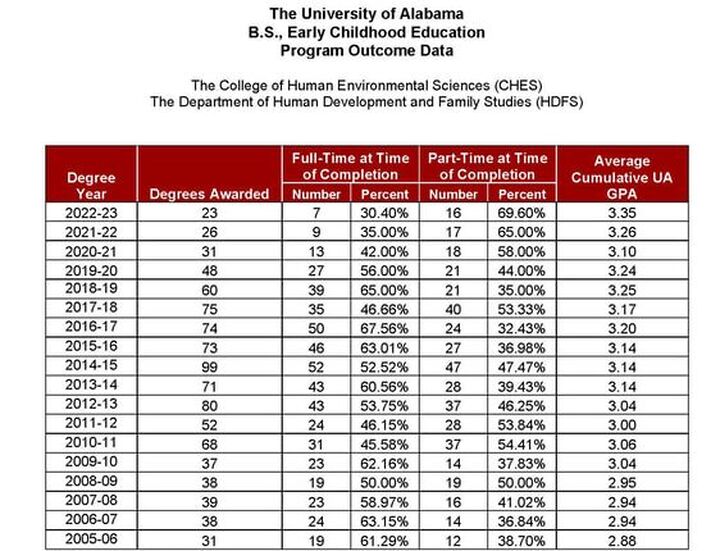EARLY CHILDHOOD EDUCATION PROGRAM MISSION STATEMENT
The mission of the Early Childhood Education Bachelor of Science (B.S.) program is to prepare competent, reflective, and caring early childhood education professionals with the knowledge and skills to impact a diverse population of young children and families using evidence-based, developmentally appropriate practices. The mission includes the philosophy that early childhood professionals are to create safe, nurturing, and culturally conscious learning environments that are affirmative and respectful of children’s and families’ identities, assets, and funds of knowledge, as well as children’s ability to co-construct knowledge.
EARLY CHILDHOOD EDUCATION PROGRAM CONCEPTUAL FRAMEWORK
The Early Childhood Education program prepares students for roles in various early learning and childcare settings (as well as related contexts) serving primarily infants, toddlers, and preschoolers. The following six tenets frame the program’s identity, core values, and student learning outcomes – child development, play-based learning, responsive teaching, reflection, honoring children, and professionalism.
Two foremost instructional values guide and direct teacher preparation in the Early Childhood Education program: hands-on learning and student-centered practices. The Program Conceptual Framework is described in more detail in the attached document (PDF).
Two foremost instructional values guide and direct teacher preparation in the Early Childhood Education program: hands-on learning and student-centered practices. The Program Conceptual Framework is described in more detail in the attached document (PDF).
Early Childhood Education Program Outcome Data
The University of Alabama’s B.S. Early Childhood Education program prepares degree candidates to be proficient in the Professional Standards and Competencies for Early Childhood Educators.
For the 2022 – 2023 academic year, data indicate that candidates are meeting expectations in each professional standard (of the 2010 Professional Standards).
For the 2022 – 2023 academic year, data indicate that candidates are meeting expectations in each professional standard (of the 2010 Professional Standards).
|
Standard 1
Promoting Child Development and Learning Standard 2 Building Family and Community Relationships Standard 3 Observing, Documenting, and Assessing to Support Young Children and Families Standard 4 Using Developmentally Effective Approaches Standard 5 Using Content Knowledge to Build Meaningful Curriculum Standard 6 Becoming a Professional |
|


